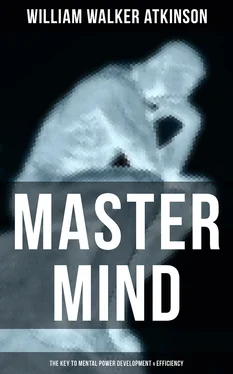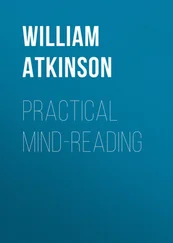A leading; authority has well said: "All persons agree that there is no such thing as unrestrained freedom of action. Every human being is, from the cradle to the grave, subject to external restraint. If a man declares that he is free to go without food, air, and sleep, and tries to act accordingly, consequences will soon deprive him of that liberty. The circle of freedom is much smaller than is sometimes thought; the fish is never free to become an eagle. Human freedom may be likened to a vessel sailing up a river. Her course must be kept rigidly within the banks; she cannot sail on the dry land; but by tacking, she can make headway up the stream in the teeth of the wind, and she can stop either at this town or at that. The popular belief is correct, that the sphere of freedom is sufficiently wide to allow a man scope enough to keep him busy for several lifetimes.
"Freedom consists in being able to choose between two or more alternative courses of action. A stone is limited to one course and is subject to an unvarying law of gravity. Exclude the power of choice, will all freedom is gone. If we have the power of alternative choice, we are within certain limits free. These limits vary. If I am educated so that I know how to do several different things in the higher walks of life, I can choose any of these things. If I am ignorant and can perform only cruder tasks, my capacity for choice is excluded from higher hues of action. Some deny that human beings have any more freedom than a stone."
The average man will indignantly deny that his freedom of will action is in any way affected or restricted by outside or inside influences. He says triumphantly: "I can act as I wish," thinking that he has answered the argument against free will. But here is the point: he can act only as he wishes; and if his wishes are controlled or determined in any way, then so are his actions controlled and determined. And as his "wishes" are but forms of his desires, then unless he controls his desires he does not control his wishes, but is controlled by them. And as the average man has not acquired a strong control of his desires, he is lacking to that extent in his freedom of will action. And right here is the main distinction between the man of the Slave Will mid the man of the Master Will.
The Slave Will obeys the orders of its desires, feelings, and other "wishes," the latter coming from Lord- knows-where into his mental field. Such a man is not free, in the true sense of the word. He is a slave to his wishes, his feelings, his desires, his passions—and he has no control, over the thoughts and ideas which feed these desires, and which often actually create them. The Master Will not only refuses to he controlled by the intruding desires, if these are deemed against his best interests, but he actually controls them—this last by controlling the ideas and thoughts which serve to feed and nourish these desires, and which in many cases also have actually created them.
A leading authority speaking upon the subject of this control of desire (and consequently of will action) by means of the control of the power of thought, ideas, through attention, has given the world the following remarkably strong, clear, and true statement of the case; you are advised to carefully read and consider the same. The authority in question says:
"At the threshold of each higher act of will stands desire. All feeling tends to excite desire. Sometimes desire gives rise to intense feeling. In one aspect, desire is feeling; in another, desire is will or an active tension which passes imperceptibly into will. In desire, properly so called, there must be a definite idea. If a person says 'I desire,' the question very naturally is, 'What?' Unless there is a definite answer to the question, desire is not the name to apply to that mental state. There are always at least two alternatives in any line of conduct. When we face an orchestra, we have the choice of listening to it as a whole, or of selecting some one instrument, such as the first violin, and paying attention to it. In looking at a landscape, we choose certain elements for close inspection. Our world is, therefore, very much what we choose to pay attention to. If we visit the tropics and choose to heed nothing but the venomous animals, the land will be chiefly one of snakes and centipedes; if we look principally at the birds and flowers, it will be to us largely a clime of song and perfume.
"Ideas detained in consciousness tend to fan the flame of feeling; these ideas may be dismissed and others summoned to repress the flame of feeling. In the higher type of action, the will can go out only in the direction of an idea. Every idea which becomes an object of desire is a motive. It is true that the will tends to go out in the direction of the greatest motive, that is, toward the object which seems the most desirable; but the will, through voluntary attention, puts energy into a motive idea and thus makes it strong. It is impossible to center the attention long on an idea without developing positive or negative interest, attraction or repulsion. Thus does the will develop motives. We may state it as a law that the will determines which motives shall become the strongest, by determining which ideas shall occupy the field of consciousness.
"We have seen that emotion and desire arise in the presence of ideas, and that the will has influence in detaining or in banishing a given idea. If one idea is kept before the mind, a desire and a strong motive may gather around that idea. If another idea is called in, the power of the first idea will decline. The more Macbeth and his wife held before themselves the idea of the fame and power which the throne would confer upon them, the stronger became the desire to kill the king, until finally it grew too strong to be mastered. They were, however, responsible for nursing the desire; had they resolutely thought of something else, that desire would have been weakened. The person who feeds a bad desire with the fitting ideas will find that some day the desire will master his will.
"In the capacity for attention we have the way to the freedom of the will. Voluntary attention makes the motive. The motive does not make the attention. Hence the motive is a product of the will. If I withdraw my attention from a motive idea, it loses vigor, like a plant deprived of air and moisture. By sheer force of will, many a one has withdrawn his attention from certain temptations, centered it elsewhere, and thus developed a counter motive. As we center our attention upon one thing or another, we largely determine our mental happiness and hence our bodily health. One person in walking through a noble forest, may search only for spiders and venomous creatures, while another confines his attention to the singing birds in the branches above."
From the above, it is seen that the only way to develop and maintain a free will is to direct the attention and thought by means of the awakened Ego—the Master Mind and Mind Master.
Chapter 4
Positive and Negative Mentality
Table of Content
Most of us have heard the old proverb which states that "As a man thinketh, so is he." And most of us accept the spirit of the idea that a man's character, disposition, activities, and general personality are dependent largely upon the general character of his thoughts. This being so, and it also being true that a man is able to control the general character of his thoughts, it logically follows that every awakened Ego is the creator of the character and personality of the individual whose self it is.
Philosophers teach us that there is a law of polarity manifesting in everything. That is to say, that in everything there is found the presence of the two poles, viz., the positive and the negative. We find this law manifest in the mentality and character of every individual. There is always to be found the positive elements of mentality and character, and the negative elements thereof.
Читать дальше












